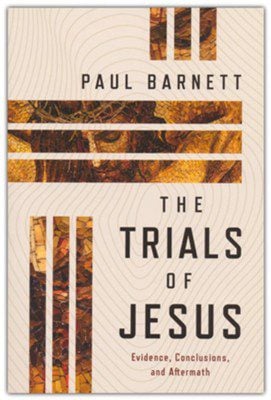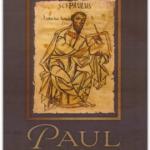To my mind, Paul Barnett is one of the greatest scholars in the world. His expertise is early Christianity, biblical history, and the New Testament. And he’s written a new book. But before we get to that, let me fondly about Paul.
Here are some of his outstanding publications (some of these volumes have been revised in later years). They are so good, I’ve cited many of them in my upcoming book The Untold Story of the New Testament Church: Revised and Expanded, due to release March 2025.
Outstanding Books by Paul Barnett
Is the New Testament History?, 1986
Bethlehem to Patmos, 1989
Apocalypse Now and Then: Reading Revelation Today (Reading the Bible Today Commentaries), 1989
The Servant King: Reading Mark Today, 1991
Colossians, Philemon (New International Biblical Commentary), 1995
The Truth about Jesus, 1994
The Corinthian Correspondence, 1997
2 Corinthians (Cambridge New Testament Commentary), 1997
The Second Epistle to the Corinthians NIC, 1997
Jesus and the Logic of History, 1997
Jesus and the Rise of Early Christianity, 1999
The Shepherd King: Reading John Today, 2005
The Birth of Christianity, 2006
Living Hope: Reading 1 Peter Today, 2006
Paul, Missionary of Jesus, 2006
Finding the Historical Christ, 2009
Messiah, 2009
The Corinthian Question, 2011
1 Corinthians: Holiness and Hope of a Rescued People, 2011
1 Corinthians: A Letter of Love, 2022
From Jerusalem to Illyricum, 2023
Paul’s new book is called The Trials of Jesus (2024) which offers a meticulously researched examination of the legal proceedings surrounding Jesus Christ’s arrest, trial, and condemnation.
As a distinguished biblical historian and former Anglican leader, Barnett brings both scholarly rigor and theological insight to this complex historical narrative.
The book systematically unpacks the judicial processes that led to Jesus’ crucifixion, critically analyzing the legal context of first-century Jerusalem.
Barnett’s work stands out for its careful reconstruction of the historical and legal environment, drawing on extensive knowledge of Jewish and Roman legal practices during the Second Temple period.
He explores the multiple trial scenes described in the Gospels – before Jewish religious authorities and Roman political powers – with nuanced attention to historical detail.
Barnett examines the procedural irregularities in Jesus’ trials, highlighting the tensions between Jewish religious law and Roman administrative practices. His deep understanding of the cultural and political dynamics of the time provides readers with a rich, contextualized understanding of these pivotal events.
One of the book’s strengths is its balanced approach. Barnett neither sensationalizes the narrative nor attempts to minimize the theological significance of the events.
Instead, he presents a scholarly analysis that respects both historical methodology and the scriptural accounts. His examination of the legal proceedings demonstrates profound respect for the complexity of the historical record.
The text is particularly compelling in its exploration of the interactions between Jewish religious leaders and Roman authorities. Barnett carefully unpacks the political motivations, personal tensions, and legal considerations that culminated in Jesus’ condemnation. He provides insightful commentary on figures like Caiaphas, Pontius Pilate, and Herod, offering nuanced portraits that go beyond simplistic historical interpretations.
Methodologically, Barnett combines rigorous historical research with careful textual analysis. He draws not only on biblical sources but also on contemporary historical writings, archaeological evidence, and scholarly research.
This multidisciplinary approach allows for a comprehensive understanding of the trials that is both academically sound and deeply engaging.
The book is particularly valuable for scholars, theological students, and serious readers interested in the historical Jesus. Barnett’s prose is scholarly yet accessible, making complex historical and legal concepts comprehensible to a broad audience.
His ability to navigate intricate historical details while maintaining narrative clarity is remarkable.
While the book is undoubtedly an academic work, it maintains a profound respect for the spiritual significance of these events. Barnett manages to balance historical critical analysis with a sensitive approach to the biblical narrative, making the book appealing to both academic and religious audiences.
Some readers might find the depth of legal and historical analysis challenging, but this is precisely what makes the book a significant contribution to biblical scholarship. Barnett doesn’t simply retell the story but offers a sophisticated analysis that invites readers to understand the historical context more deeply.
The Trials of Jesus represents a significant scholarly contribution to understanding one of the most pivotal moments in religious history. Barnett’s work is a testament to the importance of careful historical research in illuminating complex biblical narratives.
For all of this reasons, I’ve cited it in my upcoming book on the New Testament story.














